Edited by Oscar Prieto & Jordi Feu, Rossinyol, Girona University
One chapter: “Critical autonomy, social capital and mentoring programmes for children and youth” is written by colleagues from Girona University.


The Nightingale Mentoring Network
European forum to facilitate cooperation between members and the work with mentoring.
Edited by Oscar Prieto & Jordi Feu, Rossinyol, Girona University
One chapter: “Critical autonomy, social capital and mentoring programmes for children and youth” is written by colleagues from Girona University.

By: Jamie Nicole Albright & Noelle M. Hurd
Despite their promise to reduce inequality through the provision of novel opportunities and increased social capital to marginalized youth, youth mentoring interventions hold the potential to reproduce rather than reduce inequality.
In the absence of programmatic efforts to prevent the recreation of oppressive structures within mentoring programs and relationships, mentoring interventions may be ineffective, at best, and harmful to youth, at worst.
Mentors who lack understanding of power, privilege, and oppression may be particularly at risk of engaging in practices that could contribute to poor relationships or premature termination.
But marginalized youth who are equipped with tools to understand and challenge oppression may be the most effective advocates for social change.
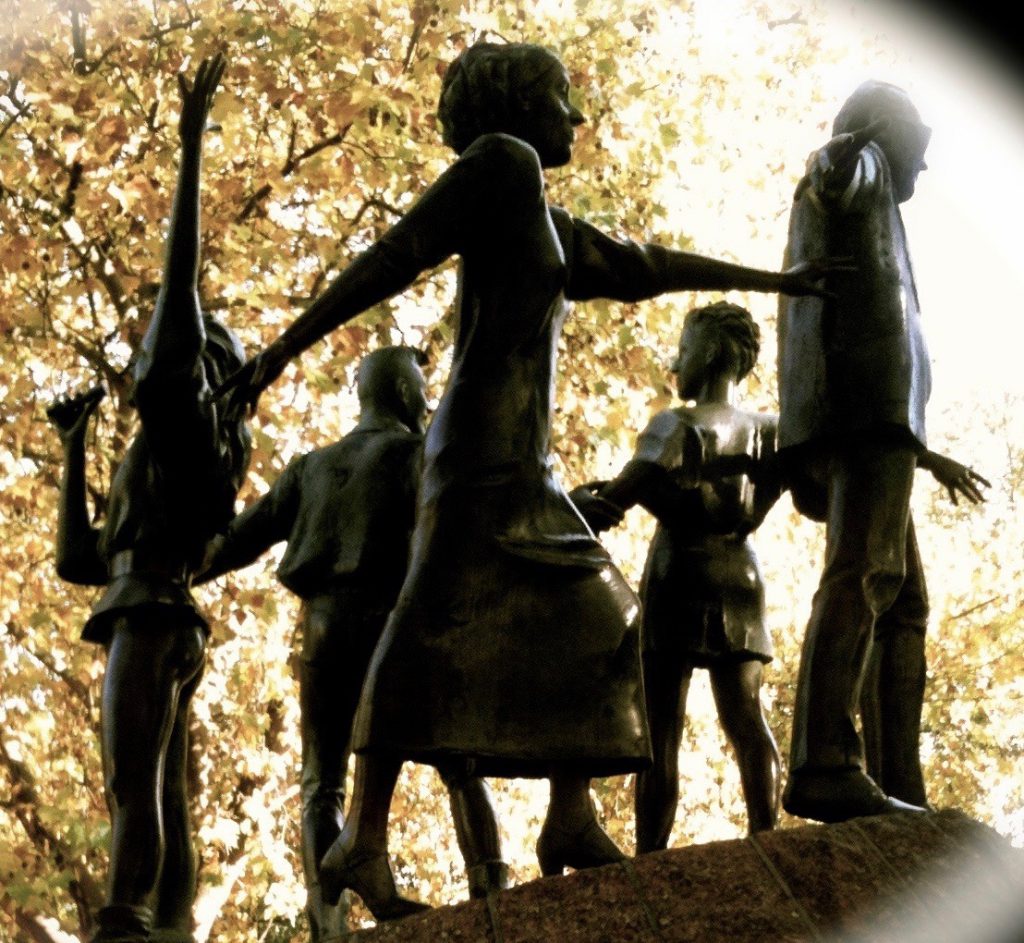
Some highlight from the Abstract:
• Makes program recommendations to reduce potentially reproducing inequality in mentoring.
• Applying a social justice framework may be central to fostering more equitable outcomes for youth.
Down load the article here
Dear Nightingale friends,
hope all of you are ok and healthy!
I also hope you have been able to start a new Nightingale Year, although, all restrictions you might have done regarding the Covid-19. Surely nothing is like it has been. However it I think you have got a lot of interesting knowledge and it would be interesting to know more about what you have done, changed, learned and experienced during this time. That’s why we have planned a Zoominar in February next year. Let us meet, learn from each other and at the same time listen and discuss interesting themes, studied by two partners in our Nightingale Network. ( read more below) But first:

Nightingale has been selected as a good example by EU.
We got a letter saying:
“The European Commission would like to congratulate you on Nightingale, which we selected as an example of good practice in this month’s editorial of the School Education Gateway. We are impressed with your project, and thought it a good fit for this month’s topic, intercultural learning“. You can find it in 23 different languages. Read more here

THE NIGTINGALE FIRST ZOOMINAR , the 24th of February 2021 “Dealing with challenges – Becoming Learning Potentials“. Mentoring from a holistic perspective.
Let us come together and celebrate our Nightingale Day with a digital Network Meeting. This is an opportunity for all of us to learn more and have experience exchange!
We all have had to fight and tackle the Covid-19 and for most of us it has meant bigger challenges and difficulties. And at the same time many children and mentors are trapped in a type of isolation. Those tandems who have started must have physical distancing and most of us have got different restriction regarding gatherings. There is for example also less to do in the city. The libraries, theatre, sport arenas etc. are closed
That´s why we want to take the opportunity to open a Zoominar of collaboration and experience exchange. This is also a possibility for all of us to set up a range of learning outcomes, provide help to each other and invite mentors or others working with us, for ex. “Contact persons” from participating school or people working in the municipality.
Since there is a lot of knowledge in our Network we also want to share two interesting themes by our network members Liv Randi Roland from Norway, Lillehammer and Peter Stammerjohann from Berlin, Germany.
We will use the page “Network Meetings” and upload all information needed.
It will also give you the possibility to spread the page link and invite mentors, caregivers, contact persons etc.
OTHER NEWS
A new Nightingale has begun to sing in the city Trollhättan, Sweden. The University of Vest and the school “Kronan” began in October, with 13 tandems.
Here is some photos from their Kick-Off. A magician performed, children and mentors got bags and t-shirts and everyone was invited to eat pancake and celebrate. Mentors and mentees made their own bracelet and gave each other.
Article about the effects of Covid-19
Many relationships have been disrupted in a special time when children needed them most.
In this article from New York Pos, you can read about the effect of the pandemic – children who are worried and cut off from their peers and all indirect effects, as for example increase mental health problems of parents and caregivers. The article is also about how programs struggle to address the emotional needs of “children of quarantine.” But at the same time how the technology has open new opportunities. Read the article
New research
There is an article put on our webpage, by Gilkerson, L., & Pryce, J. (2020) about the concept of “attunement” in mentoring and a framework for relationship called – FAN.
FAN encouraged staff members to concentrate on strengthening mentor relations and also prioritizes reflective practice and theories of interpersonal communication. The next step in this development is to train the mentors on this tool.
Interesting article of how building and reflective practice can be use in mentoring. Maybe something for you to use when we discuss the Supervision.
Please read more here.
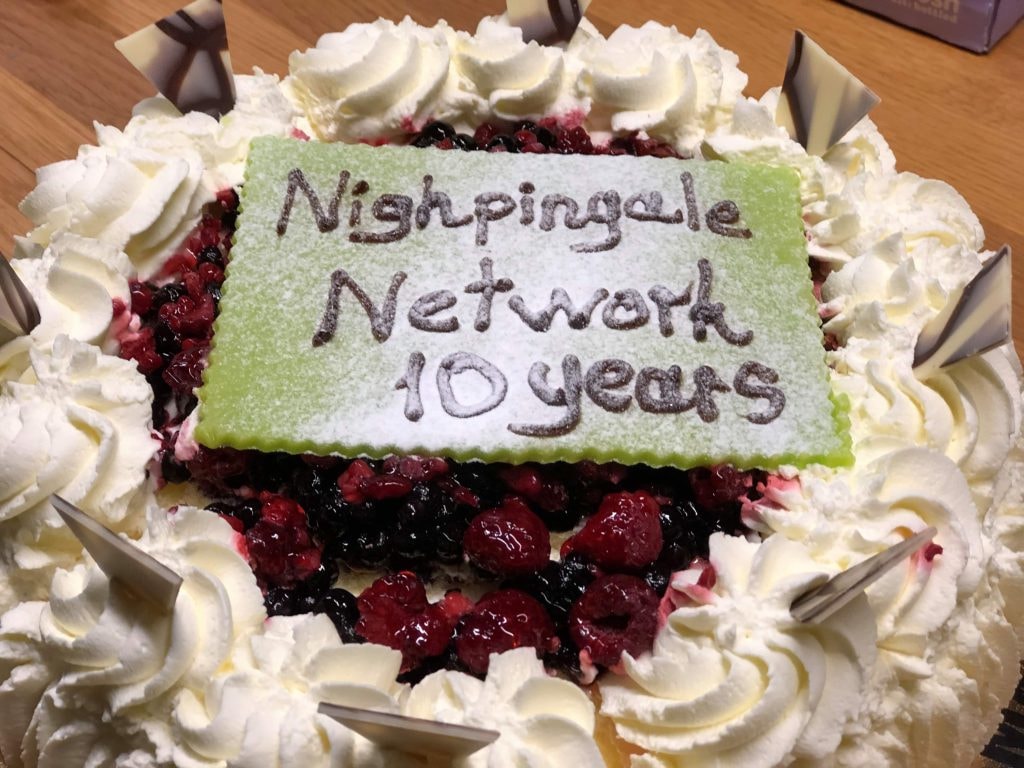
What a year! It was almost a miracle we could meet in Malmö, at ourNetwork Meeting and we also got to celebrate our 10th anniversary of our Network. Only one week later everything changed a lot, with the pandemic of Corona.
Now I want to thank you all for your cooperation and hard work in the Nightingale. Together we can be strong!
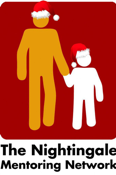
We wish everyone a very nice and relaxing holiday and a Happy New Year. Looking forward seeing you again in the 2021.
If you have to much free time… listen to Tedore Zeldin who is talking about “the art of conversation”.
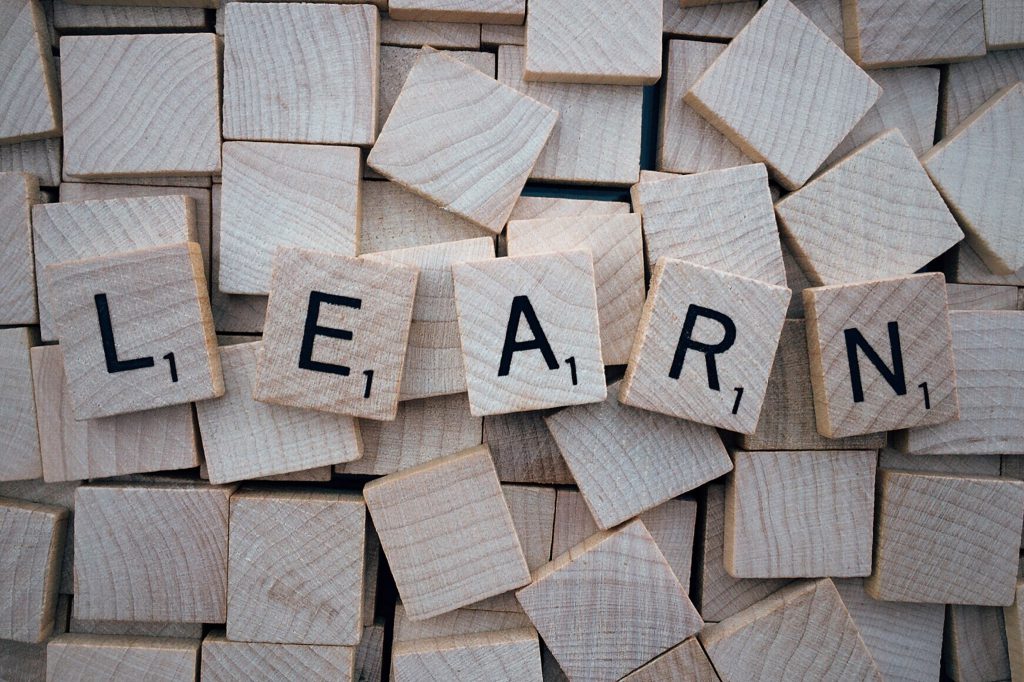
Gilkerson, L., & Pryce, J. (2020). The mentoring FAN: A conceptual model of attunement for youth development settings. Journal of Social Work Practice, 0(0), 1–16.
The purpose of this article is to introduce the concept of attunement in mentoring – a FAN framework for relationship-building and reflective practice in mentoring. The Mentoring FAN encouraged staff members to concentrate on strengthening mentor relations. The framework also prioritizes reflective practice and theories of interpersonal communication to help build relational connections within the youth mentoring system. The next step in the development of the Mentoring FAN is to train the volunteer mentors on this tool.
Down load the article here

This study examines how mentors approach their mentees and how the adults in their mentees’ lives influence. ( 766 youth participated, in age from 11 to 14)
Person-centered analyses revealed three mentoring profiles which were differentially associated with youth outcomes:
“Status Quo Mentors,” reported low-to-moderate levels of closeness in the dyad, low levels of connecting their mentees with programs and people in their community, and low levels of mediating for their mentees
“Close Connectors,” reported moderate-to-high levels of closeness, moderate-to-high levels of connecting, and low levels of mediating.
“Connector-Mediators,” reported moderate levels of closeness, connecting, and mediating.
Youth mentored by “Close Connectors” demonstrated the greatest benefit, with significant improvements in parent–child relationship quality, extracurricular activity involvement, and help-seeking.

Dear Nightingale friend,
hope you are all fine and you could start a new Nightingale year despite the the Covid-19.
Who could imagine we still have to fight this pandemic! Be careful and do what you can, to not be infected or spread it!
For most of us we have or will soon start our new Nightingale year, maybe with fewer tandems. So is the case in our programs in Sweden. We have however been in touched and helped each other ( zoom-meetings) and all of us are hopeful. it is good to help each other so please get help from each other: experience exchange and best practice can be very helpful.
I hope you also have filed in the ANNUAL REPORT AND EVALUATION for last Nightingale year. Could you please send it to me/us the board, we want to compile it and give you the result. I also want to remind you about your own homepage, please change/correct the link to our right Nightingale Network homepage – we no longer use the link: Nightingalementoring.org but nightingalementaring.mau.se
Partner News
our partner Marit, in Bodö, north of Norway, will retire so we would like to give her the biggest thank you for her commitment in the Nattergalen and Nightingale Network.
It has been so nice and a privilege to have her in our network. She has been a board member and has also presented the Nightingale all around, once in Spain, together with me, Carina and Oscar from Girona. She has also published: Nattergalen- møter med muliguheter. Sett, hørt og førstått? If you interested and understand Norwegian you can download it from our webpage.
But most of all we want to thank you for her passion and hard working for all children and mentors at Bodø University and we wish you the best. Big hug! We will miss you Marit!
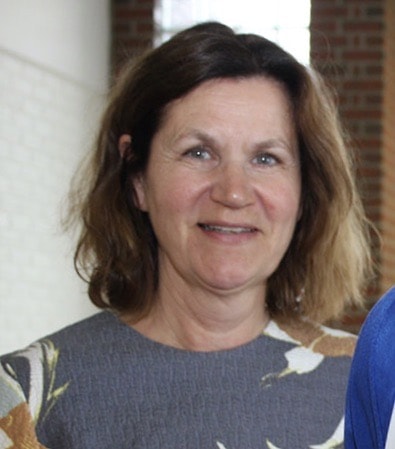

But we will of course also like to welcome our new partner: Bjørnar Blaalid.
Hi my name is Bjørnar,
I am 34 years and I have a master degree in sociology from University in Bergen. Since 2020 I am working at the University in Nord University, as associated professor. And I also have a scholarship in sociology. I have lived in Bodø 4 years, (come from Bergen, Vestlandet) and I am now the coordinator in Nattergalen Bodø, from this autumn. At Nord University we have 45 tandems. The children come from three schools in Bodø municipality. The students are studying Bachelor in the Barnevern og sosialt arbeid, (social work). I am also very interested in sport and I am running a Taekwondo course and work as a “mentor” for my Taekwondo students.
We also want to present our new coordinator i Malmö, Sara:
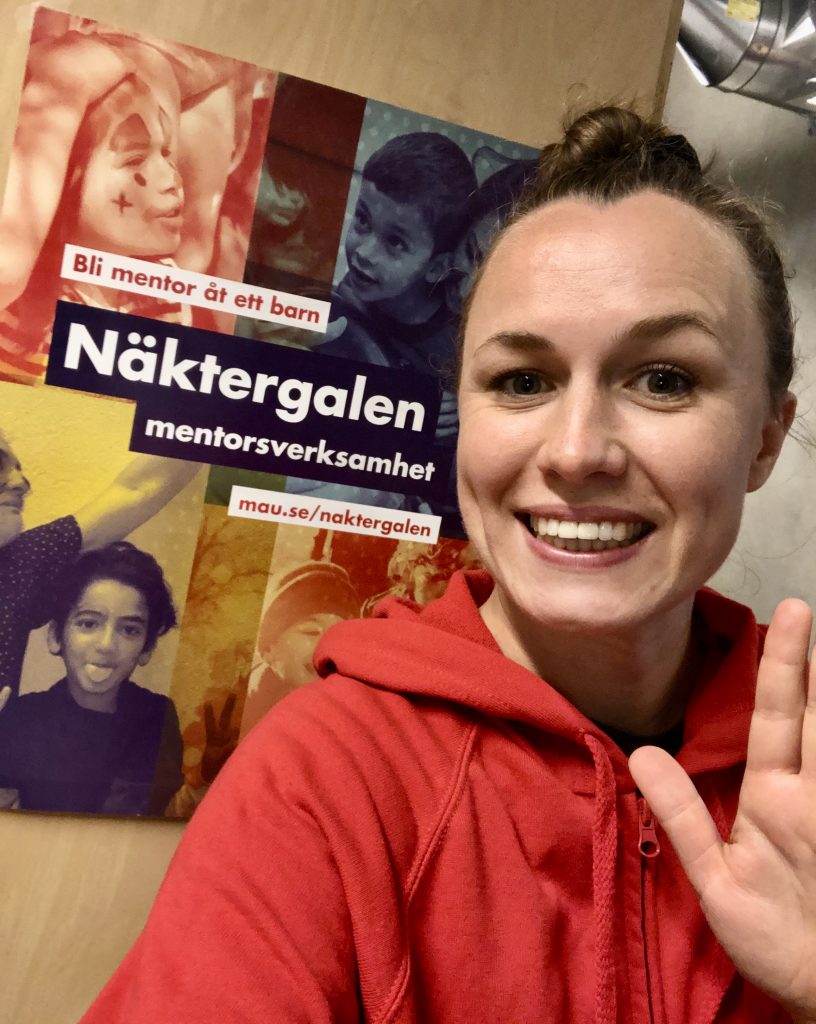
Hallo everyone !
My name is Sara and since the middle of September I am Näktergalen in Malmös new coordinator. I studied social work and have been working a lot with people in different ages, with different need of help and support. It’s so much fun and meaningful working with Näktergalen together with Miriam and Carina. My first weeks have mostly been filled with interviewing the students who wants to become mentors and also interviewing all the children who wants to have a mentor! It’s been great to meet all the curious and happy students and children.
The board
we just want to inform you we have a new board member- Peter Stammerjohann, from Berlin has announced he was to take part in the board and we have welcomed him to do so.
The board have had its latest meeting the 28th of September. We decided that our next Nightingale Network Meeting will be digital as a “zoominar”. We want to use our opportunity to still be able to meet, but not physical. We have ideas regarding this Network meeting but want to discuss it with you. We want your ideas and help! Please let us know what you thing.
The meeting will be at the Nightingale Day the 24th of February. We are still thinking about the content and the audience. We would like to include mentors, contact persons from participating schools etc.
Any ideas, please let us know. Would be nice if all National Nightingale Network could discuss this and send us your thoughts and ideas.
Next board meeting will be the 23rd of November, so we would be grateful if you could send us what you have discussed and your thoughts and ideas. We will discuss your ideas and come back with a draft version.
A chapter about The Nightingale, in a new book, by Liv Roland Randi.
We would like to present chapter 10 in the book: “Values in Child Welfare Service, written by our network member Liv, (unfortunately only in Norwegian) the abstract is in English.
You will find it on our webpage under About, “The Nightingale research and evaluations”.
If you have published or written anything you would like to share. Please let us know.
Have a nice autumn. Best wishes!
Chapter 10:
Verdimøter som organisert læringsprosjekt
Liv Randi Roland , The Nightingale Norway
Høgskolelektor, Høgskolen i Innlandet

Click here to down load the book
Abstract in English
Values in Child Welfare Service discusses how child welfare services are influenced by social, cultural and personal values. The primary objective of this anthology is to contribute to debate on how frameworks, ideologies and moral understandings can and should have an impact on child welfare services’ work on behalf of vulnerable children and youths.
From the abstract chapter 10.
This chapter is based on the experiences from a mentoring program called Nattergalen (the Nightingale), in which social work, child care and community edu- cation students meet children with immigrant backgrounds. The students and chil- dren meet weekly to participate in activities for the mutual pleasure and learning of both parties. The activities are agreed upon in consultation with the children’s parents. This chapter aims to provide a picture of the students’ experiences with the children’s home base. Through the many meetings with the children and their par- ents, together with the systematic reflection about these experiences, the students obtained a nuanced and varied understanding of the different value orientations in modern family life. The primary aim of Nattergalen is to add to and strengthen the students’ multicultural skills and to motivate the children to attend school and to choose education. The chapter elucidates how the students who are participating in Nattergalen are being encouraged or coached to reflect on the varying value orien- tations in their meetings with children and their families.
Keywords: professional values, systematic reflection, multicultural skills, children and families with immigrant backgrounds
Most volunteer-based mentoring and tutoring programs that connect youth to volunteers from diverse backgrounds are creating bridging social capital for their youth. However few frame their program design and outcome messages. Few have ways to measure this.
This report talks about the value of social capital and of using metrics to measure it.
Click here to down load the report
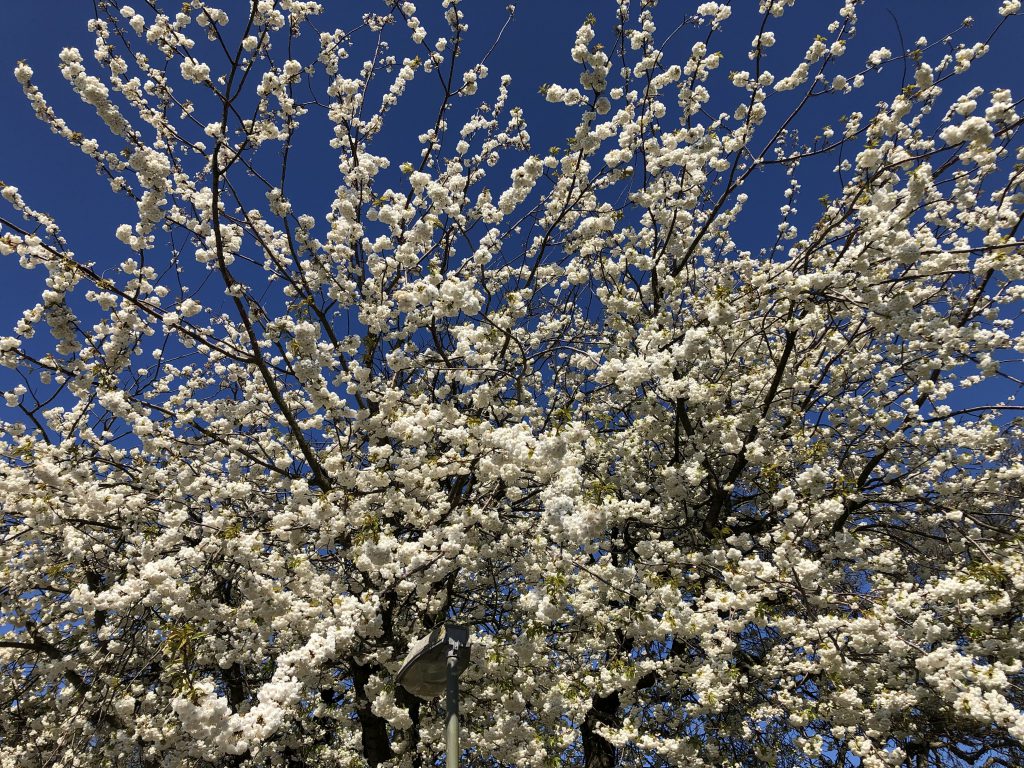
Dear Nightingale friends
It has been a very special “Nightingale year”. In February we celebrated the Nightingale Network 10 anniversary in Malmö and had our Network meeting. It was so beneficially and nice meeting you all again. Then some weeks later the Covid-19 pandemic broke out with a lot of sad consequences, death, unemployment etc. In the Nightingale we have to rethink and mentors and mentees had to meet digital – a new word: social distance was born, really the opposite we are working with – our goal is to establish close relations and connecting people. Now thousands of protestors “Black life matter” have been gathered in the street all around the globe after witnessing the death of George Floyd and once again experienced racism, oppression etc. Another virus, a human virus we must fight! For this reason I can recommend an organisation: the “Equal justice initiative
and Bryan Stevensons bestselling book: Just Mercy. You can also listen to him at
Ted talk
I do not know who said this but I think it is right:
We cannot do all the good the world needs.
But the world needs all the good we can do.
PARTNER INFORMATION
Don´t forget to send us:
The Annual Report
The Mentor Evaluation
Also remember to pay the Network membership and for those who haven´t pay the Malmö Network meeting fee. Please do so.
Now something nicer…..Do not forget to save the date 24-25th of February 2022 – next Network meeting in Lillehammer, Norway!
PARTNER NEWS
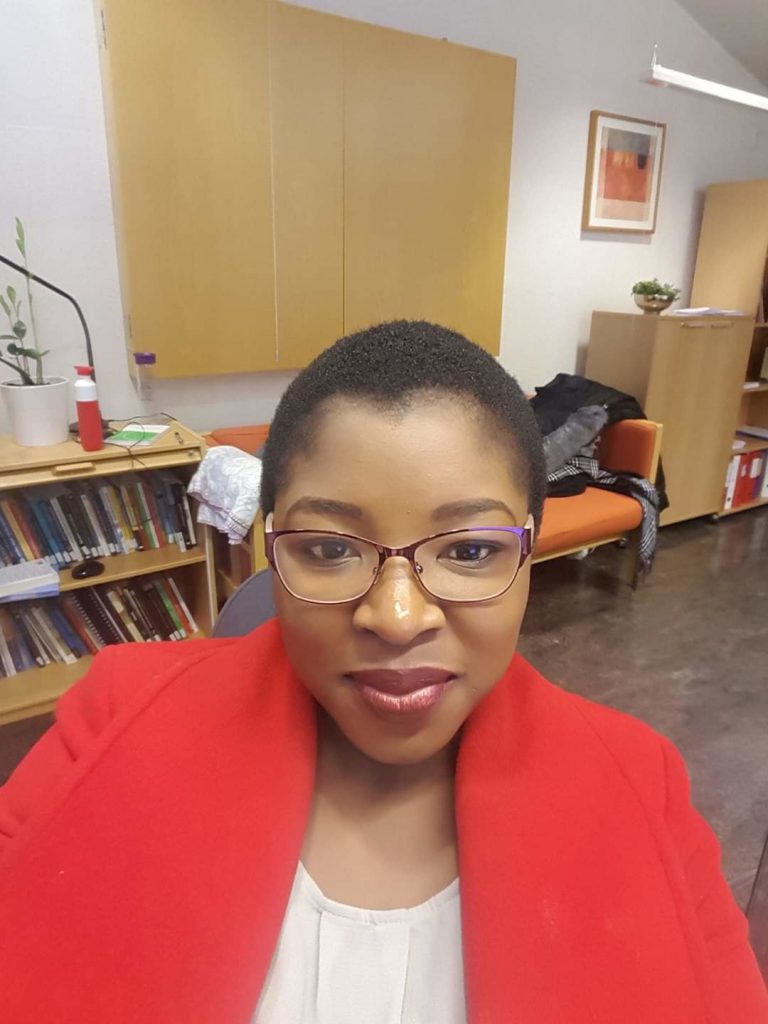
Stavanger University want to share an interesting article about Memory Jayne Tembo´s PhD thesis. It is about the child welfare sector. Unfortunately it is only in Norwegian.Load down the article here.
But there is however another article, in English: “Parents’ emotional experiences of their contact with the Child Welfare Services: a synthesis of previous research – a research review”. Here you can load down the research article.
Rossinyol Barcelona have celebrated its 10th anniversary. Hipp, hipp hurrah. Best wishes for another 10 years!

Mentor quotiations
We also want to share some quotations from this year:
“My mentee and I are from different social groups but brought together for mutual exchange. Firstly, we are from different age groups where one has more life experience than the other. This way can be used for each of us to learn from each other and grow. Secondly, we are from different cultural background. She is originally from Norway and I am from Africa but we are able to share stories and experiences and still connect.
Lastly, we are from different educational backgrounds as she is still in primary school. We can learn a lot from each other this way.“
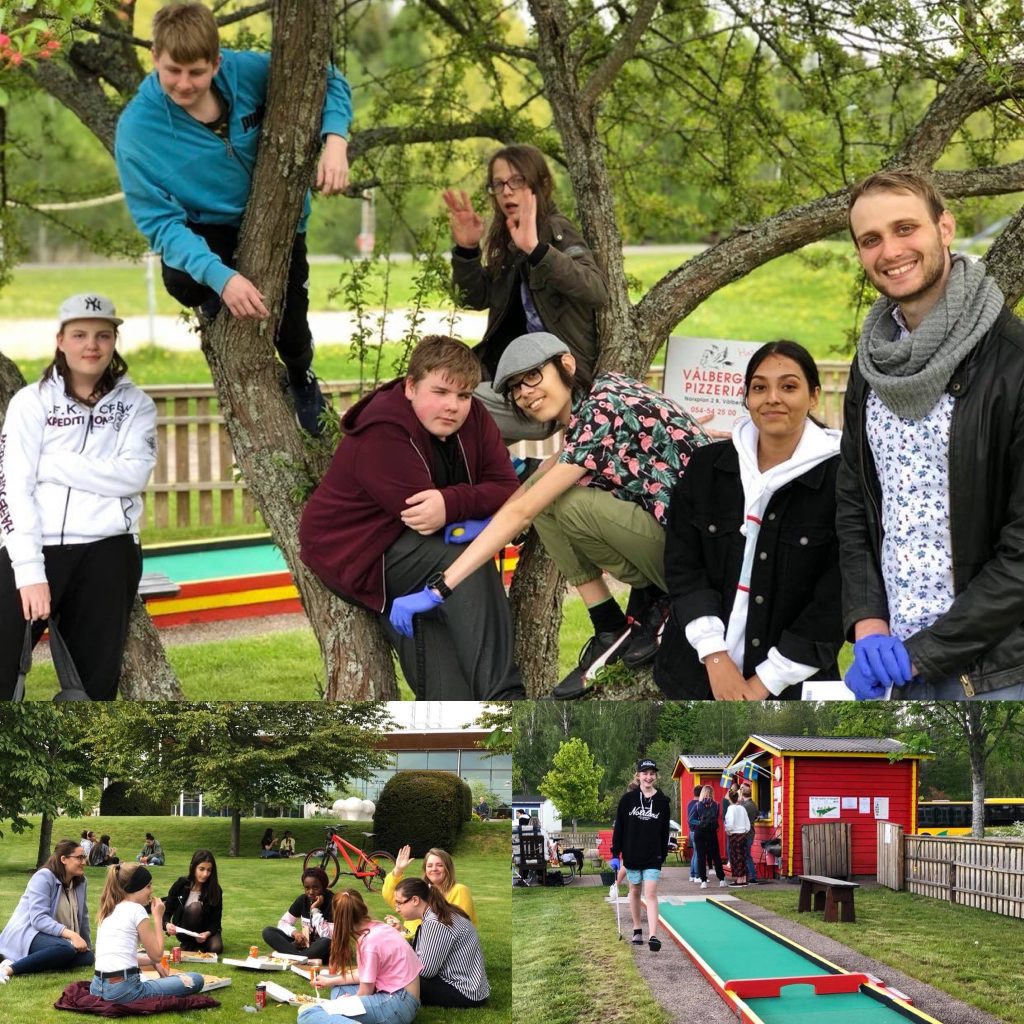
“Keep up the good work! I think you have made a great match with me and my mentee. Just keep it up so! I think that this mentorship helped me learn a lot and also grow in so many ways. I think that both sides can only gain from the mentorship.“
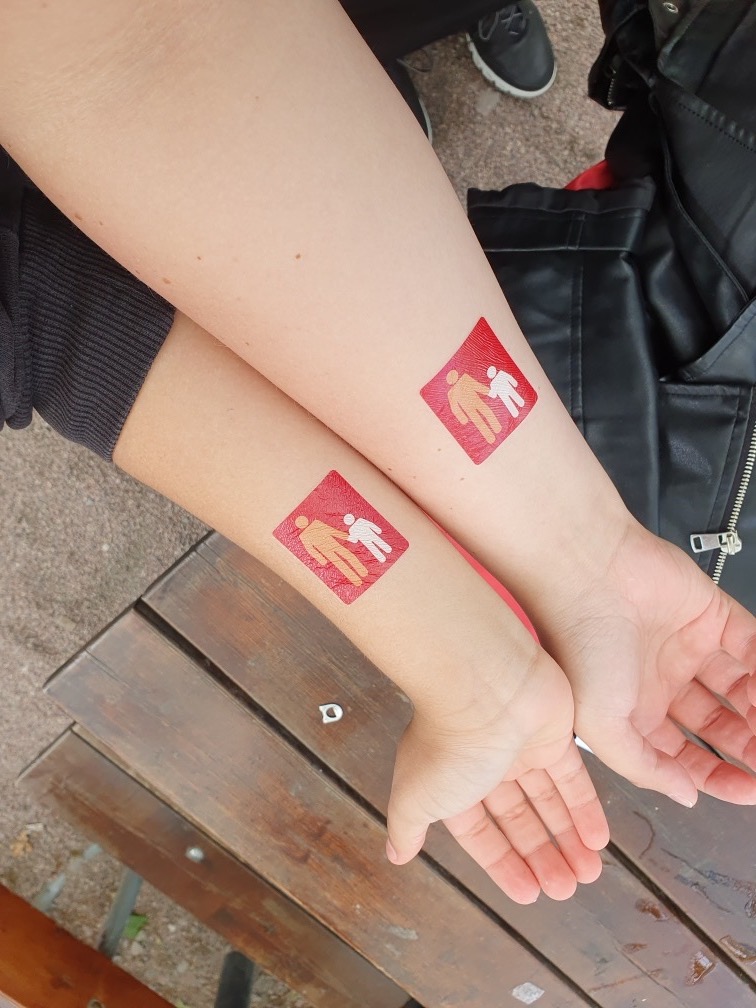
Summer reading! ;D
Always remember to look at our webpage: “Research about mentoring”. There you will find different research article about mentoring.
If You have anything you would like to share – please let us know!
Now I which you all the best and a really nice relaxing summer!

Carina
By Mark Vincent B. Yu & Nancy L. Deutsc

This study demonstrates how a developmental perspective may elucidate the processes that characterise and underlie youth’s relationships with supportive non parental adults.
Findings provide implications to understand, promote and sustain these important relationships in the lives of youth.
However, despite the potential benefits of these relationships, there has been little consideration of how the relational process may vary across different adolescent stages.
Click here to down load the article.